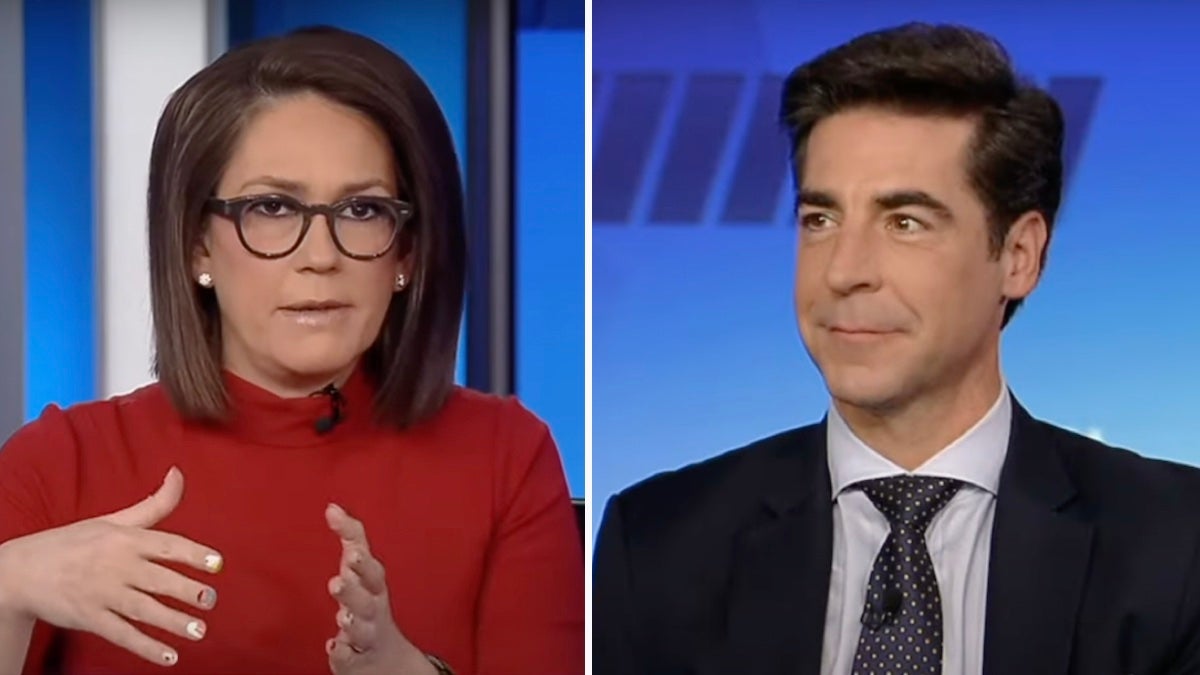Elon Musk and the Left’s Reaction: A Clash of Ideals, Power, and Accountability
In the world of media and politics, few figures elicit as much controversy and admiration as Elon Musk. The tech mogul, entrepreneur, and CEO of multiple successful ventures, has become a central figure in shaping the discourse around government efficiency, accountability, and innovation. His most recent involvement with the U.S. government, particularly through his Doge program, has stirred the pot yet again—this time drawing fiery reactions from the left.
As tensions between Musk and political figures like Jessica Tarlov, as well as media outlets such as CNN, continue to rise, the narrative surrounding his influence on the future of American governance becomes more intense. In a public address, Musk took aim at government inefficiency, waste, and fraudulent activity, unveiling a plan that he believes could radically alter how America approaches its social security system, government grants, and bureaucracy.
At the heart of this political confrontation lies a battle over who gets to define the future of the U.S. government. On one side, we have Musk, who advocates for radical transparency and efficiency in the way the government operates, using his entrepreneurial skills to streamline processes and expose systemic issues. On the other side, we have a coalition of left-wing politicians, media personalities, and activists who are pushing back against his methods, accusing him of prioritizing his ego and undermining established systems.
Musk’s Role in Doge and the Fight for Accountability
Elon Musk’s involvement with the Doge program, designed to root out inefficiencies and corruption in government, has been met with both praise and fierce criticism. Musk’s goal was simple: he aimed to use his unique skill set as a businessman to reduce bureaucratic waste and fraud. According to Musk, social security fraud alone is costing the American government billions of dollars, and his initiative—working alongside other key figures in the Trump administration—was created to tackle this issue head-on.
Musk’s transparency and radical approach to government accountability have made him a target of the left. During a recent live broadcast, Musk found himself in a tense confrontation with MSNBC’s Jessica Tarlov, who accused him of undermining the integrity of social programs and politicizing essential services. However, Musk was unflinching in his response, stating that the issues at hand were much bigger than individual politicians or parties. In his view, the bureaucracy and fraud endemic to the system were draining vital resources from the very people these programs were meant to help.
What Musk proposed was more than just a challenge to the status quo—it was a call for systemic reform. And yet, his critics, like Tarlov, were quick to label him as an outsider, as someone whose “ego” was steering the conversation away from the real issues. This narrative, however, is not just about Musk’s larger-than-life persona; it’s about what he represents in terms of a new model for government reform.
The Left’s Reaction: A Breakdown of the Narrative
The reaction to Musk’s involvement in the Doge program and his plans for social security reform has been overwhelmingly negative from left-leaning outlets and figures. Jessica Tarlov, one of the key spokespeople for this criticism, has openly questioned Musk’s motives. She accuses him of hijacking the government’s focus for his personal gain and insists that his approach is neither sustainable nor empathetic to the needs of the American people.
However, her arguments seem to miss the larger point Musk is making: that the traditional bureaucratic system has become riddled with inefficiencies and corruption, leading to the diversion of resources away from those who need them most. His critics, however, frame his actions as a dangerous overreach, as if they were only about his personal gain and not about exposing systemic flaws. The left, in particular, has continued to paint Musk as a villain in this scenario, despite his clear intent to address the massive flaws within the system.
The irony in the left’s reaction is that they have been notoriously vocal about the dangers of corporate corruption and government inefficiency. And yet, when Musk—a highly successful businessman known for his innovative approaches—turns his attention to cleaning up government waste, the same people who would normally support such efforts turn against him. In essence, they seem to be more concerned about his celebrity status and approach than the reforms he’s proposing.
A New Era of Transparency: Musk vs. the Left
At the core of this debate is the clash between two approaches to governance. Musk’s method of radical transparency and reform, combined with his track record of making billion-dollar companies successful through innovation and disruption, presents a direct challenge to the way things have always been done in Washington. His involvement in the Doge program serves as a reflection of his belief that the government, much like any other system, should be streamlined to eliminate inefficiency and corruption.
For the left, this is not just a political issue—it’s an ideological one. The left has long championed the welfare state, advocating for expanded social programs and increased government intervention. However, Musk’s challenge to these established norms threatens to upend the narrative they’ve worked so hard to cultivate. His push for reforms is seen as an attack on the very systems they’ve built to protect vulnerable citizens.
Yet, Musk’s arguments hold weight. The social security system, for example, is rife with fraud. The evidence Musk presents suggests that billions of dollars are being funneled out of the system due to corrupt practices, wasting taxpayer dollars and depriving the people who need assistance the most. His involvement in the investigation of these fraudulent activities underscores his commitment to fixing the problem—not just talking about it.
The Media’s Role in Shaping Public Perception
As the narrative surrounding Musk continues to unfold, it’s clear that media outlets play a significant role in shaping public perception. The mainstream media’s treatment of Musk has been largely negative, with critics focusing on his wealth, celebrity status, and unorthodox methods rather than the substance of his proposals. The idea of a tech billionaire stepping into government affairs is unsettling for many on the left, who have historically viewed corporate power as a source of inequality.
However, Musk’s approach challenges the idea that politicians and public servants are the only ones capable of initiating real change. In this sense, Musk’s transparency and willingness to expose corruption in government positions him as a catalyst for a new kind of accountability—one that is sorely needed. Whether the media and politicians like it or not, Musk’s involvement in government reform signals a shift in how power is exercised and how reforms are proposed.
The Growing Divide: Who’s Really Behind the Curtain?
At the end of the day, what’s truly at stake here is the future of governance itself. Musk’s involvement in public policy is not just about fixing broken systems—it’s about exposing the hidden agendas and corrupt practices that have been allowed to thrive unchecked for decades. His efforts to reduce fraud, eliminate waste, and streamline government programs are necessary steps toward ensuring that public resources are used effectively.
Unfortunately, the left’s refusal to acknowledge these flaws—opting instead to attack Musk for his methods and his status—only further entrenches the divide between those who want to improve the system and those who profit from maintaining the status quo. As long as these divides persist, it will be impossible to create the kind of change Musk is advocating for.
In the end, it’s not about Musk’s personal gain or his celebrity status—it’s about making sure that the government works for the people, not the other way around. And if that means challenging established norms and disrupting the system, so be it. The American people deserve a government that works efficiently and transparently. Musk’s bold approach may not be perfect, but it’s a necessary step in the right direction.
Conclusion: The Fight for Accountability Continues
As Elon Musk’s efforts to reshape the American government continue to unfold, the battle between transparency, accountability, and political ideology grows more intense. His involvement in Doge, his focus on rooting out fraud, and his push for a more efficient government system all present significant challenges to the current political landscape. The media’s response, often tainted by personal bias and ideological division, only further complicates the narrative. However, whether the left is ready to admit it or not, Musk’s influence is reshaping the way we think about government, power, and the future of public policy. Only time will tell how successful his efforts will be, but one thing is certain—the fight for accountability and transparency is just beginning.
DOGE TEAM, KEEP EXPOSING!!!!! Elon Musk FLIPS THE SCRIPT on Jessica Tarlov During Fox News Interview.



